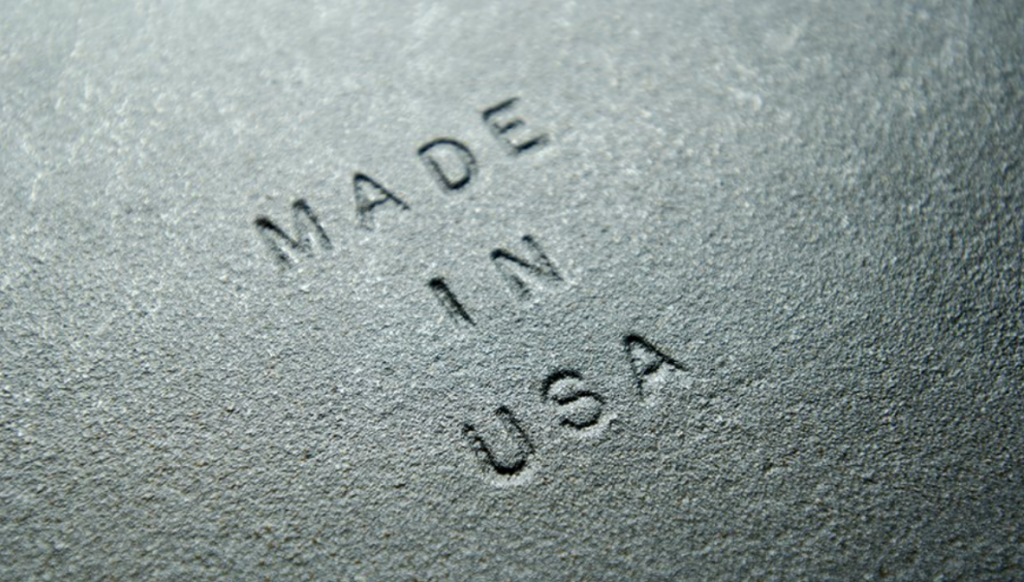
National Defense Magazine wrote an opinion article on why we must Americanize the US Defense Industry supply chain, and we at Unionwear agree.
The opinion piece cites that high-ranking U.S. officials and corporate executives have been saying, for years, that U.S. national security is at risk due to our military’s reliance on foreign nations for raw materials, parts and products. It is time for leaders to walk their talk and wrestle back the manufacturing and defense industrial base.
U.S. corporations have outsourced more than 5 million jobs and 91,000 manufacturing plants since 1998, according to the Economic Policy Institute. The closing of factories in the nation for the past 24 years has forced the U.S. military to increasingly rely on imports to keep forces armed and ready.
This opinion is strongly bi-partisan and should not be controversial.
President Donald Trump in 2018 identified hundreds of instances where the U.S. military was dependent on foreign countries, especially China, for critical materials. For example, an analysis from the U.S. Geological Survey at the time said the United States produced no rare earth minerals in 2017, while China accounted for 81 percent of global mining production. Rare earth minerals are used in magnets, radars and other electronics critical to defense systems.
The next administration raised the same concerns. A February report developed on the order of President Joe Biden warned of the consequences of low manufacturing investment in the United States. The study pointed out that the U.S. share of the world market in goods has continuously declined, and manufacturing output as a percentage of GDP has similarly declined, from more than 25 percent in 1947 to 11 percent at the end of 2020. The report went on to outline 64 recommendations as initial steps in a longer-term effort to build a strong and responsive supply chain in the coming years.
Despite the warnings, the situation continues to get worse. The COVID-19 pandemic highlighted the need for a continued push for onshoring and revitalizing North American manufacturing. When the outbreak began, supply lines necessary to sustain production within the defense industry were frozen, drawing attention to the vulnerability of the defense industrial base to being cut off. According to the consulting firm McKinsey and Company, only 22 percent of automotive, aerospace and defense players had regionalized production to boost their supply chain resilience by May 2020, even though they indicated previously they had prioritized the approach.
What got us here? It all boils down to companies chasing short-term profits to satisfy shareholders at the expense of loyalty to the United States, coupled with a fierce competitive landscape. Once a major manufacturer outsources, others in the industry have no choice but to follow suit to realize the same decreased costs.
It is time that the nation’s leaders heed the alarm bells, adopt the suggestions to Americanize the supply chain with haste and not let political roadblocks slow us down. We cannot afford to be hijacked by shortages, shipping delays, security threats, natural disasters or pandemics. With today’s modern technology, we can control costs and level up our workforce to jobs that will spur even greater innovation.

 Dad Caps
Dad Caps
 Five Panel Hats
Five Panel Hats
 Mesh Back Hats
Mesh Back Hats
 In Stock Blanks
In Stock Blanks
 Snapback Hats
Snapback Hats
 Stretchfit Hats
Stretchfit Hats
 Duffel Bags
Duffel Bags
 Backpacks
Backpacks
 Tote Bags
Tote Bags
 Computer Bags
Computer Bags
 Sling Messenger Bags
Sling Messenger Bags
 Cooler Bags
Cooler Bags
 Cuff Hats
Cuff Hats
 Beanies
Beanies
 Scarves
Scarves
 Zipper Folders
Zipper Folders
 Stitched Folders
Stitched Folders
 Accordion Folders
Accordion Folders
 Ring Binders
Ring Binders
 Letter Folders
Letter Folders
 Clipboards
Clipboards

 Union Made In USA
Union Made In USA






